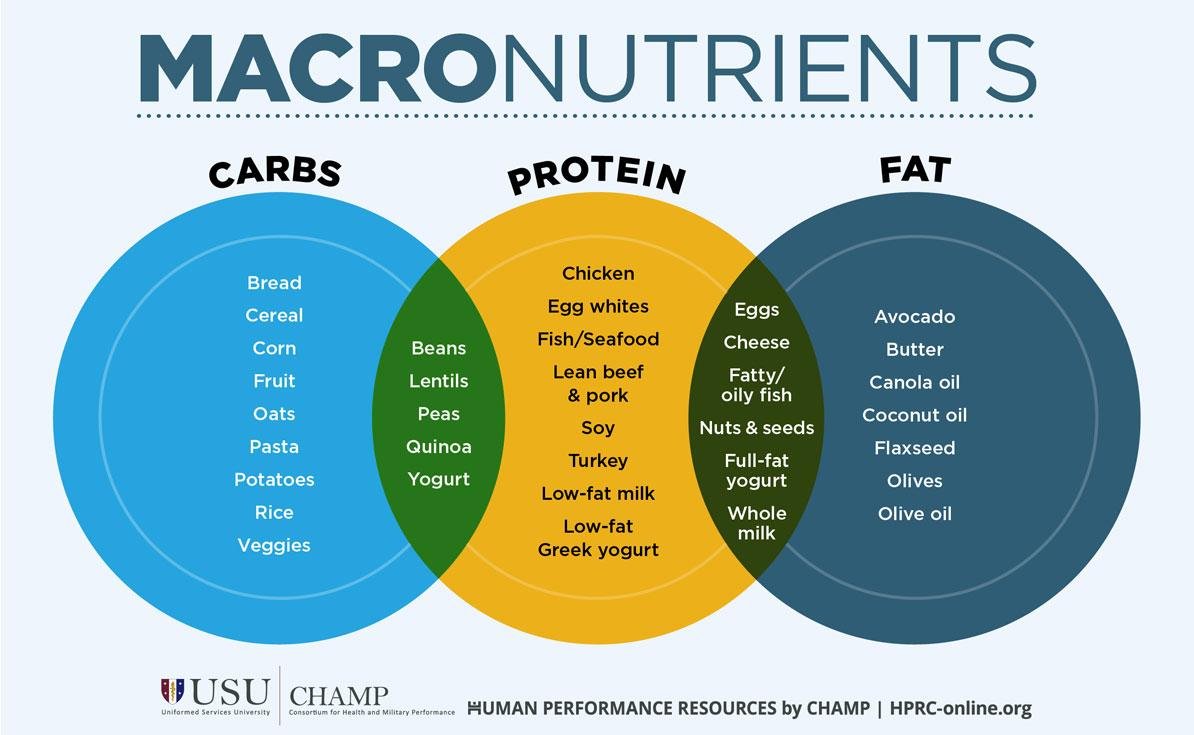A balanced diet is the cornerstone of good health, providing the body with essential nutrients to perform at its best. However, with a plethora of conflicting information available, understanding the fundamentals of a balanced diet can be daunting. In this article, we will delve into the basics of a balanced diet, exploring what foods to eat to achieve optimal health and well-being. From macronutrients to micronutrients, we will break down the components of a balanced diet and provide practical tips on how to incorporate them into your daily meals. By the end of this article, you will have a comprehensive understanding of what it takes to nourish your body for better health.
Key Components of a Balanced Diet
Protein
Eating enough protein is essential for a balanced diet. It helps build and repair tissues, supports immune function, and keeps you feeling full. Good sources of protein include lean meats like chicken and turkey, fish, eggs, beans, and tofu.
Whole Grains
Whole grains are rich in fiber, vitamins, and minerals. They provide sustained energy and aid in digestion. Include whole grain foods like brown rice, quinoa, whole wheat bread, and oats in your daily meals for a well-rounded diet.

Importance of Macronutrients in Maintaining Health
When it comes to maintaining good health, paying attention to macronutrients is essential. Macronutrients are the building blocks of a balanced diet and include carbohydrates, proteins, and fats. Each macronutrient plays a unique role in keeping our bodies healthy and functioning optimally.
Carbohydrates are the body’s main source of energy and should make up the majority of our calorie intake. They are found in foods like fruits, vegetables, grains, and legumes. Proteins are essential for building and repairing tissues, making enzymes and hormones, and supporting immune function. Good sources of protein include meat, poultry, fish, dairy, and plant-based sources like beans and lentils. Lastly, fats are important for brain health, hormone production, and nutrient absorption. Healthy sources of fats include avocados, nuts, seeds, and olive oil.
Micronutrients: Essential Vitamins and Minerals
Micronutrients are essential vitamins and minerals that our bodies need in small amounts to function properly. While macronutrients like carbohydrates, protein, and fats provide the bulk of our energy needs, micronutrients play a crucial role in everything from supporting our immune system to maintaining healthy skin and hair. Incorporating a variety of micronutrients into our diet is key to overall well-being and optimal health.
Some important micronutrients include:
- Vitamin A: Supports healthy vision, immune function, and skin health.
- Vitamin C: Helps boost immunity and promote healthy skin and connective tissues.
- Iron: Essential for transporting oxygen in the blood and preventing anemia.
- Calcium: Important for bone health and muscle function.
| Micronutrient | Benefits |
|---|---|
| Vitamin D | Supports bone health and immune function |
| Zinc | Helps with wound healing and immune system function |
The Role of Fiber in a Healthy Diet
Fiber is an essential component of a healthy diet that plays a key role in maintaining overall health and well-being. It is a type of carbohydrate that the body cannot digest, found in plant-based foods such as fruits, vegetables, whole grains, nuts, and seeds. Including an adequate amount of fiber in your diet can have numerous health benefits, including promoting digestive health, reducing the risk of chronic diseases such as heart disease and type 2 diabetes, and aiding in weight management.
There are two types of fiber: soluble and insoluble. Soluble fiber dissolves in water and helps to lower cholesterol levels and regulate blood sugar levels. Foods rich in soluble fiber include oats, beans, apples, and citrus fruits. Insoluble fiber does not dissolve in water and aids in promoting regular bowel movements and preventing constipation. Sources of insoluble fiber include whole wheat, brown rice, carrots, and nuts. It is important to incorporate a variety of fiber-rich foods into your diet to ensure you are reaping the benefits of both types of fiber.
Tips for Creating a Balanced Meal Plan
When creating a balanced meal plan, it’s important to include a variety of nutrient-rich foods to ensure you’re getting all the essential vitamins and minerals your body needs. Start by incorporating a mix of fruits, vegetables, whole grains, lean proteins, and healthy fats into your meals. This will help you achieve a well-rounded diet that promotes overall health and well-being. Remember that portion control is key, so try to fill half your plate with vegetables, one-quarter with lean proteins, and one-quarter with whole grains.
Focus on incorporating a rainbow of colors into your meals to ensure you’re consuming a wide range of nutrients. Include foods from all food groups to ensure you’re getting a good balance of carbohydrates, proteins, and fats. Don’t forget to stay hydrated by drinking plenty of water throughout the day. It’s also important to listen to your body’s hunger cues and eat when you’re hungry, stopping when you’re full. By following these tips, you’ll be well on your way to creating a balanced meal plan that supports your overall health and well-being.
Final Thoughts
In conclusion, a balanced diet plays a crucial role in maintaining good health and overall well-being. By understanding the basics of a balanced diet and incorporating a variety of nutrients into your meals, you can ensure that your body receives the necessary fuel to function optimally. Remember to focus on consuming a variety of fruits, vegetables, whole grains, lean proteins, and healthy fats, while limiting processed foods and sugary beverages. With a balanced diet, you can support your immune system, prevent chronic diseases, and feel energized throughout the day. Make small, sustainable changes to your eating habits and watch as your health and vitality improve. Here’s to a healthier you!